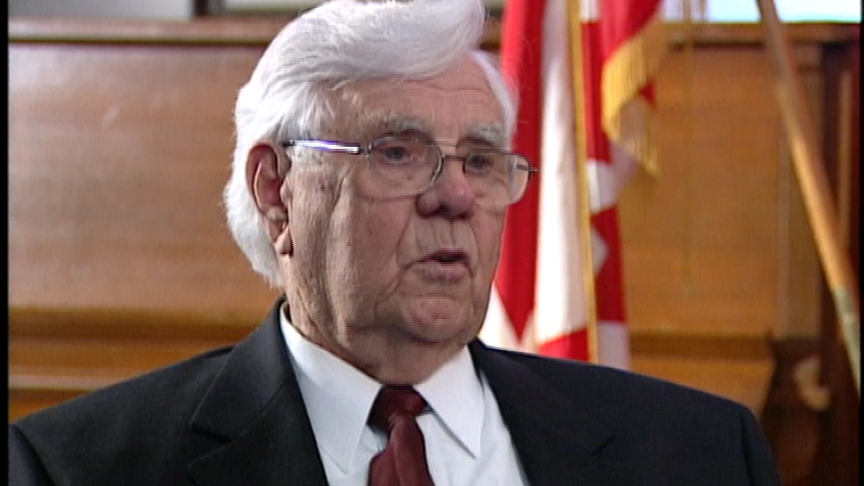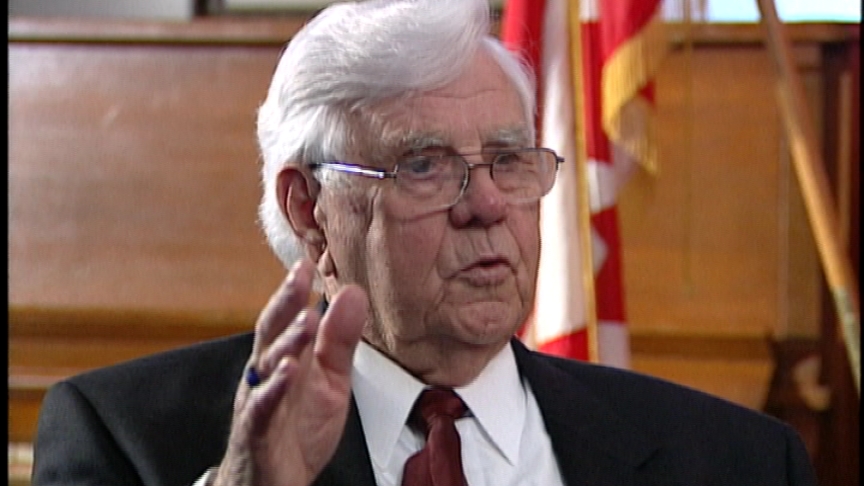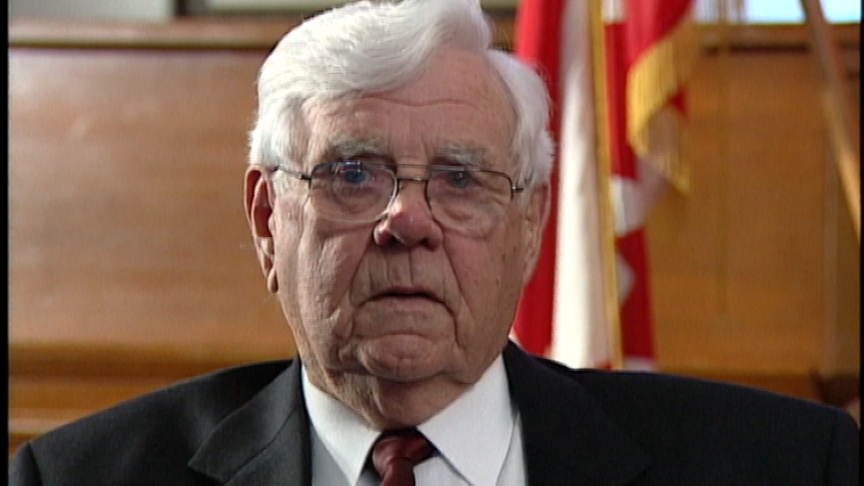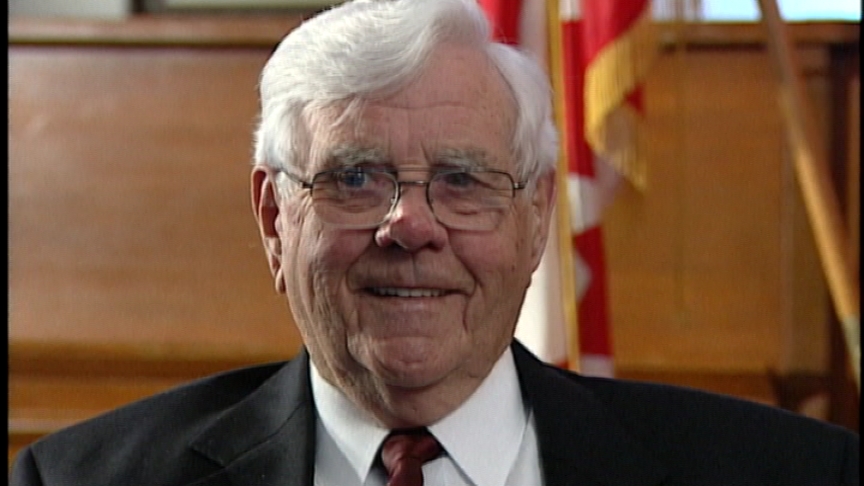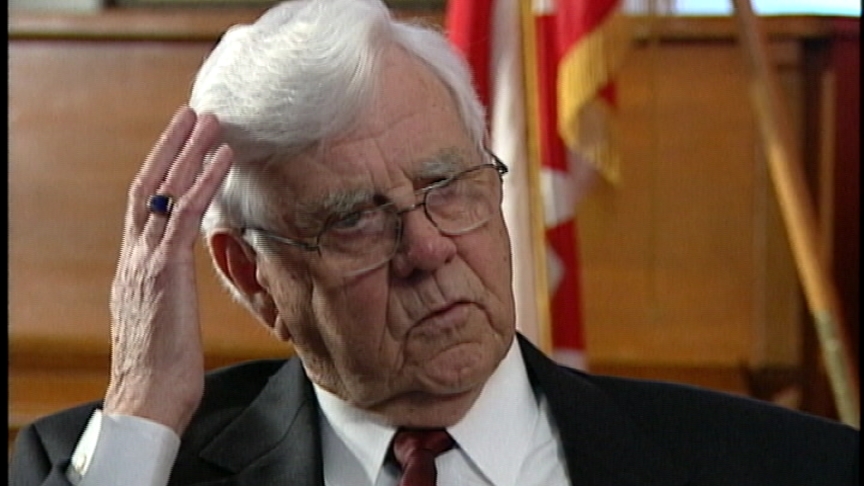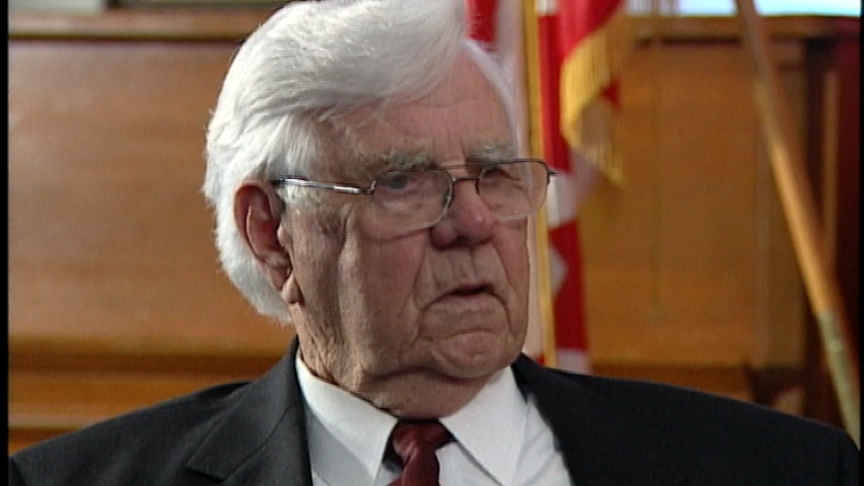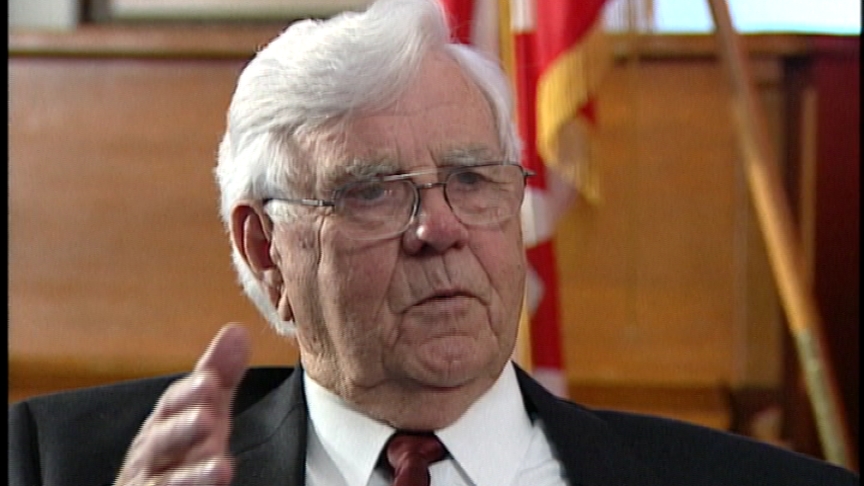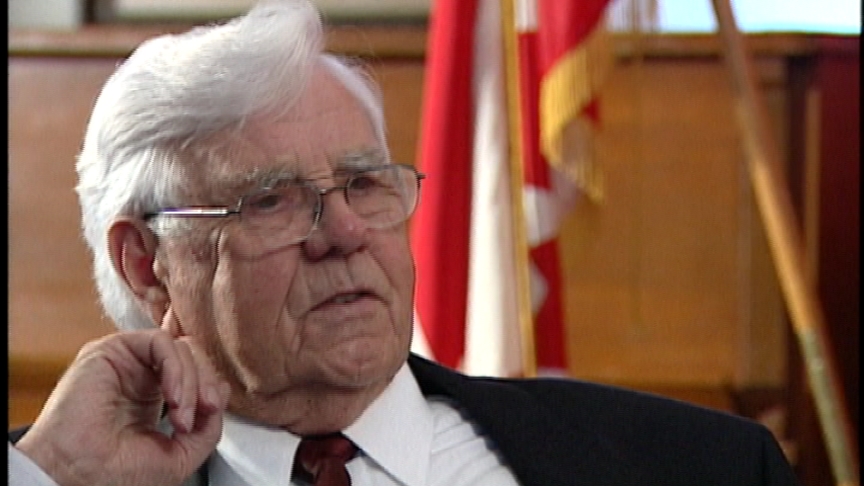Interviewer: Did you ever join a Manning Pool?
Yes. For what reason I don't know,
but.... I don't know why I had to join the Manning Pool,
because we considered that we were in the Merchant Navy,
and we were there until war ended, you know.
And the way that the Canadian National, they were a commercial company
and they looked after their own men, trying to hold onto their own men.
There was a lot of Canadian National steam ship officers went in the Navy
when the war broke out. And so then the Canadian National would try
and discourage a lot of people from going in the Navy because they had
a lot of ships to run. And they were doing a job, as well as,
they were in the Navy, transporting goods and that, and they were,
they were expected to transport goods.
Well they had to have men to man their ships.
The chief officer around the ship, he took us in groups.
We went to the Manning Pool, in Halifax this was,
and we signed off of the ship. We went over to the next table and
we signed into the Manning Pool. When we signed into the Manning Pool,
it was for the duration of the war. And then we went to the next table and
we signed out of the Manning Pool, went back over to the other table,
and we signed back on our ship again. And we were taken aboard of the bus
and back to our vessel again. So I never spent any time in the Manning Pool.
Interviewer: Could you tell us what a Manning Pool was?
Well, the Manning Pool was for people who had lost their ship,
or I, I can't tell you too much.
Only thing I know, that when ships were torpedoed
and they were taken into Halifax, or if it was over in the old country
and they were taken ashore, they had to go to the Manning Pool.
And then the Manning Pool would put them out on another vessel.
There was a, a good friend of mine, a shipmate.
He was on, he had been on an English ship,
and they had quite a load of ammunition. And they had loaded,
they had took on their ammunition at the magazine up in Bedford Basin,
went down and anchored behind George's Island,
and fire broke out aboard of the vessel.
Luckily, it wasn't in the hold where the, where the ammunition was,
and then certainly... And they tried to extinguish the fire
by putting a hose down in the ventilators and everything.
And when the captain seen that they wasn't making any headway,
he issued orders to scuttle the ship. And she wasn't going down fast enough,
and they got a hold to the navy and told them,
and they shelled her and sunk her. I'm getting back to the Manning Pool.
And, certainly, now the crew abandoned the ship,
and they were in their lifeboats out in the harbour.
And it was in April and cold as could be,
and they were wet and everything.
But they weren't allowed to go ashore,
this was regulation, until the vessel sunk.
And when the vessel, when the ship sunk, then they become DBS,
Distressed British Seamen, and they were allowed to go ashore.
And they rode ashore, and they went to the Manning Pool.
Then he got transferred to the ship that I was on.



